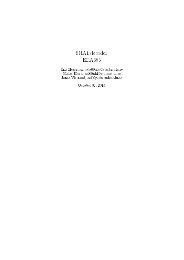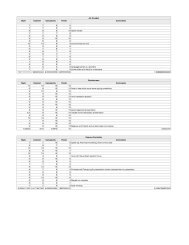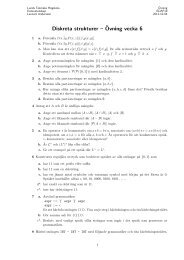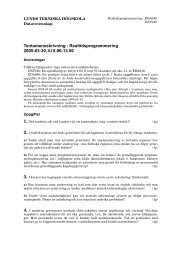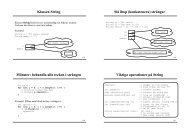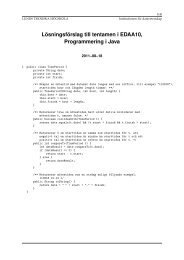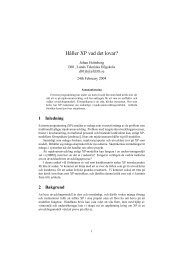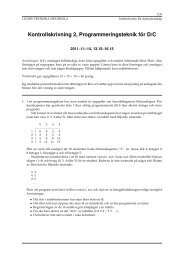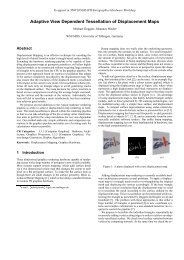Laboratory Exercises, C++ Programming
Laboratory Exercises, C++ Programming
Laboratory Exercises, C++ Programming
You also want an ePaper? Increase the reach of your titles
YUMPU automatically turns print PDFs into web optimized ePapers that Google loves.
<strong>Programming</strong> with the STL 33<br />
class BitsetIterator : public BitReference {<br />
public:<br />
// ... typedefs, see below<br />
};<br />
BitsetIterator(Bitset::BitsetStorage* pb, size_t p)<br />
: BitReference(pb, p) {}<br />
BitsetIterator& operator=(const BitsetIterator& bsi);<br />
bool operator!=(const BitsetIterator& bsi) const;<br />
BitsetIterator& operator++();<br />
BitReference operator*();<br />
The assignment operator must be redefined so it copies the member variables (as opposed to the<br />
assignment operator in the base class BitReference, which sets a bit in the bitset). The typedefs<br />
are necessary to make the iterator STL-compliant, i.e., to make it possible to use the iterator with<br />
the standard STL algorithms. The only typedef that isn’t obvious is:<br />
typedef std::forward_iterator_tag iterator_category;<br />
This is an example of an iterator tag, and it informs the compiler that the iterator is a forward<br />
iterator.<br />
A5. Implement the member functions in bitsetiterator.cc. Uncomment the lines in bitset.h and<br />
bitset.cc that have to do with iterators, implement the begin() and end() functions. Use<br />
the program bitsettest2.cc to test your classes.



